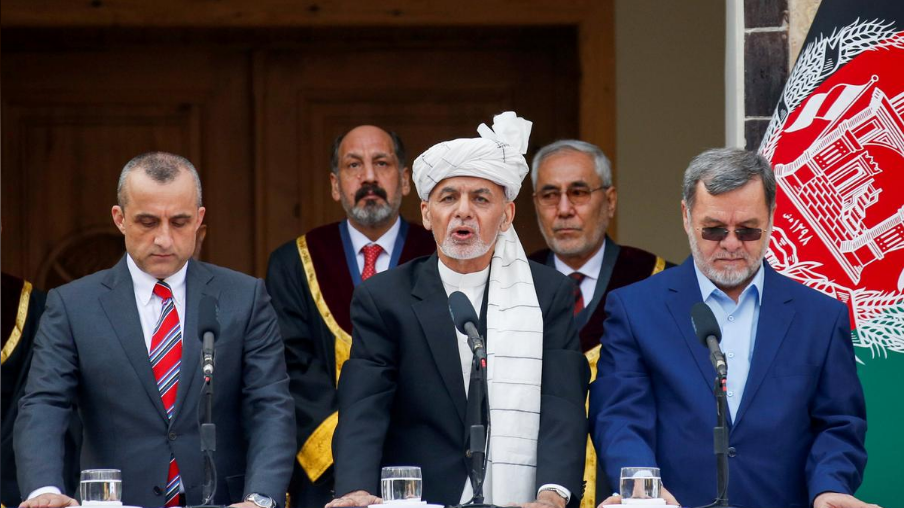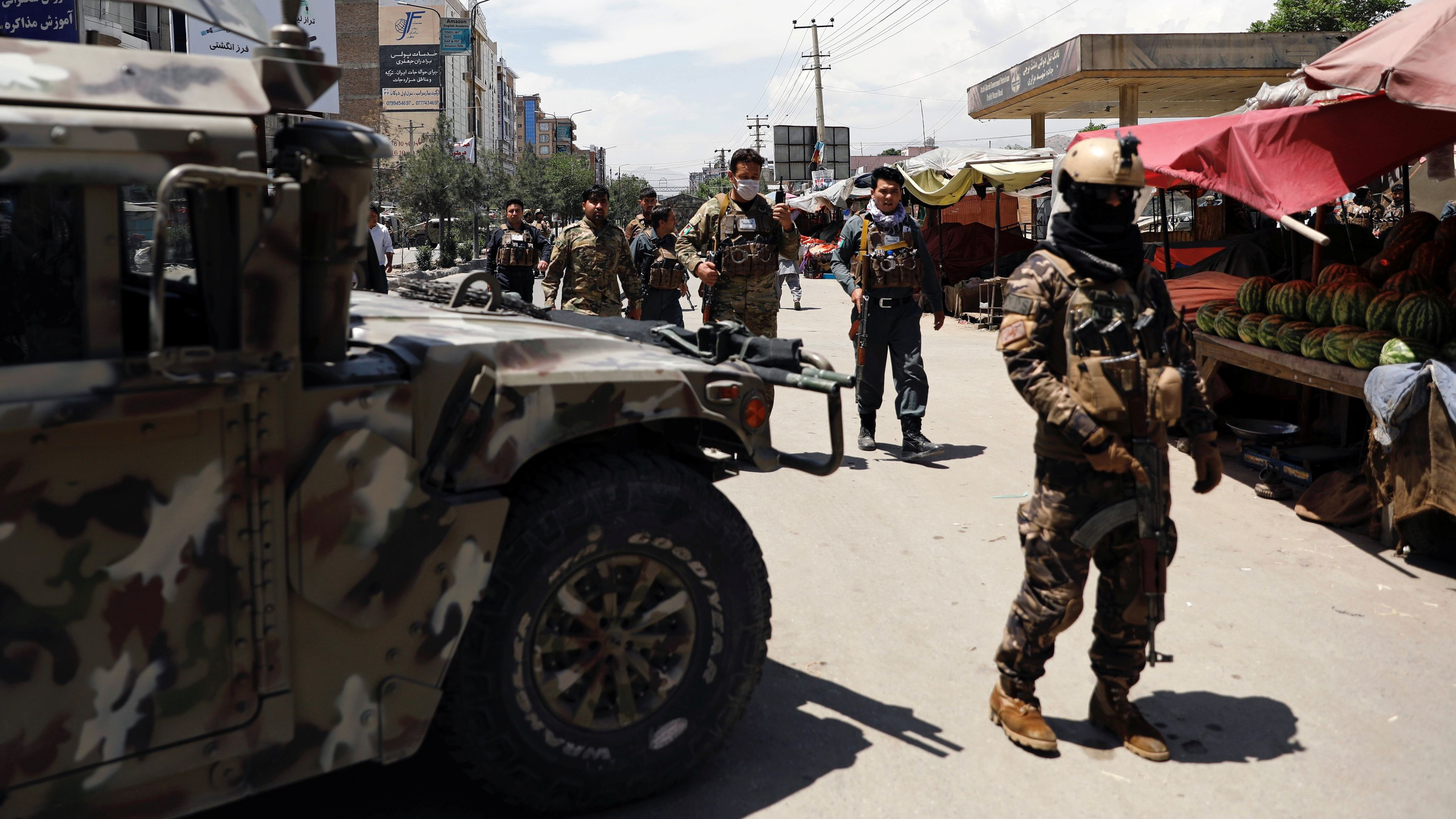
Afghanistan's President Ashraf Ghani (C) takes an oath during his inauguration in Kabul, Afghanistan, March 9, 2020. /Reuters
Afghanistan's President Ashraf Ghani (C) takes an oath during his inauguration in Kabul, Afghanistan, March 9, 2020. /Reuters
Editor's note: Hamzah Rifaat Hussain is a former visiting fellow at the Stimson Center in Washington and serves as assistant researcher at the Islamabad Policy Research Institute (IPRI) in Pakistan. The article reflects the author's opinions and not necessarily the views of CGTN.
U.S. President Joe Biden on April 14 announced that American troops deployed in Afghanistan will return home before the 20th anniversary of the 9/11 attacks which resulted in the ensuing 2001 war. The decades-long conflict which ravaged the country and resulted in widespread destruction of infrastructure, loss of civilian lives and a pronounced insurgency resulted in a prolonged military presence which the Taliban militants considered as a justification for waging war.
While, most analysts would agree that peace in Afghanistan must be Afghan owned and Afghan led with minimal American intervention, the absence of sustainable peace in Afghanistan today entails that significant risks remain.
The U.S. has a long history of citing internal discord in other countries to justify military intervention. Sustainable peace or stability, however, has never been attained with chaos, factionalism, competing entities vying for influence and the presence of terrorism adding to domestic quagmires in countries such as Syria, Libya and Afghanistan.
Afghanistan is consistently ranked as the most dangerous country in the world with the Taliban group gaining significant clout without any indication or intention of disarming. Huge swathes of Afghan territory are already under Taliban control with insurgents continuing to challenge the writ of the state and attack both foreign and Afghan security forces.
NATO has acknowledged that the Taliban has so far not abided by the Doha accord of February 2020, as far as reducing violence is concerned, with a staggering spike in attacks across various provinces in the country witnessed ever since. Negotiating with the Taliban is one thing. Ensuring that they synergize with the civilian government is quite another.
Senior American military officials have expressed skepticism over the latter and consistently advocated for a prolonged presence of American troops given that premature withdrawals can result in the collapse of the civilian government.

Afghan security forces arrive at the site of an attack in Kabul, Afghanistan, May 12, 2020. /Reuters
Afghan security forces arrive at the site of an attack in Kabul, Afghanistan, May 12, 2020. /Reuters
Other aspects, such as prisoner swaps, enshrined in the Doha peace deal struck between the former Donald Trump administration and the Taliban without the Ashraf Ghani government, are still a work in progress and have yet to materialize. These subjects are political issues and on-ground realities of Afghanistan that cannot be determined by simple policy matters, such as troop withdrawals or mulling protracted presence.
There is no guarantee that the Taliban group will renounce violence and come to the negotiating table after the withdrawal, which will have spillover effects for the entire region. Pakistan, for example, has rendered innumerable sacrifices in the U.S. war on terror with civilian casualties claimed by the Pakistan-based Tehrik-e-Taliban Pakistan, which was responsible for the Peshawar school massacre. If a vacuum of exploitation is provided, Afghanistan's situation could spiral out of control.
It is indisputable that American political and military involvement must cease as a prerequisite for Afghanistan to witness sustainable peace on its shores. The issue, however, is that there was never complete political disengagement by various American administrations to date.
The Taliban still views the American strategy of constructive engagement in Afghanistan as backing the civilian government unconditionally with senior administration officials claiming that the Taliban have been warned that attacking withdrawing troops will be met with a befitting response.
Questions also remain over the status of several hundred American special operation forces which often work with the CIA for counterterrorism missions. Such forces are clandestine and are not part of the 2,500 troops in Afghanistan under consideration, and are meant to deal with terrorist outfits such as ISIL which are active and present on Afghan soil.
The myriad of issues confronting Afghanistan today requires strategic foresight and is not simply a question of sanctioning troop withdrawals or advocating for prolonged presence. Biden's announcement split the U.S. Congress with Republicans overwhelmingly slamming the plan as a grave mistake, while Democrats hailing the move as an end to the war for the United States.
The truth is that withdrawals can split conflict-stricken Afghanistan, too, which is a scenario that the region and the globe should look to avoid with sustainable peace in the country being elusive.
(If you want to contribute and have specific expertise, please contact us at opinions@cgtn.com.)

